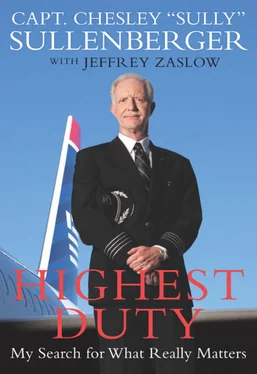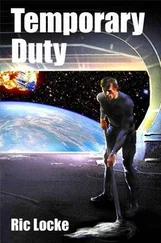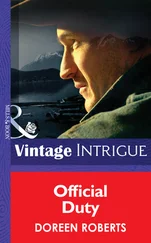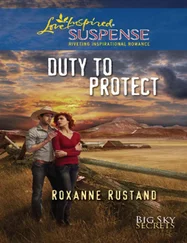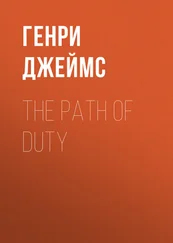When I met him, he was in his late fifties, and a no-nonsense, all-business kind of man. Most of his time was spent crop dusting, but if he saw someone who seemed to have the smarts and temperament to fly, he’d take him on as a student.
I guess he liked the look of me well enough. I was this tall, quiet, earnest kid, and I was respectful because my parents had taught me to be deferential to my elders. I was also the classic introvert, and he wasn’t a guy who needed much conversation. He saw I was serious about flying and that I had an obvious enthusiasm, despite my low-key demeanor. He said he’d charge me six dollars per hour for the airplane. That was the “wet rate” because it included fuel. For his time training me, he asked for another three dollars an hour. My parents paid for the airplane, so for a thirty-minute flight I owed him just $1.50 for his instructor’s fee. I paid for my share from money I earned in my job as a church janitor.
I have logbooks going back decades, covering thousands of flights. And in my first logbook, my very first entry was April 3, 1967, when Mr. Cook took me up for thirty minutes. We flew in a tandem two-seater, an Aeronca 7DC. It was a very basic propeller airplane, built in the late 1940s. It didn’t even have a radio. I had the controls in my hands from pretty much the first moment.
I sat in front, Mr. Cook sat in back with his own set of controls, and he did what pilots call “following you through.” That meant he’d keep his hands hovering over his stick so he could instantly take command if I went astray with my stick. He shadowed my movements, shouting directions over the noise of the engine. As so many pilots did in the early years, he used a cardboard megaphone to aim the sound of his voice right in my ear. He spoke only when he needed to, and he rarely gave a compliment. Still, in the weeks that followed, I sensed that he thought I was catching on, and had the right instincts. I studied flying at home every night, too, taking a correspondence course that prepared me for the private pilot license written exam. Mr. Cook saw I was devoted.
Sometimes I’d arrive for a lesson and he wouldn’t be there. So I’d drive into town because I knew exactly where to find him: drinking coffee at the local Dairy Queen. He’d finish his coffee, toss a tip on the table, and we’d go back to his strip.
He gave me sixteen lessons over the next couple of months, each averaging thirty minutes in the air. By June 3, my total flying time added up to seven hours and twenty-five minutes. That day, he took me up for a flight, and after ten minutes of flying around, he tapped me on the shoulder.
“All right,” he said. “Bring it in for a landing and taxi over to the hangar.” I did as I was told, and when we got there, he hopped out of the plane. “OK,” he said. “Take it up and land three times by yourself.”
He didn’t wish me luck. That wasn’t his way. I’m not saying he was gruff or unfeeling. It’s just that he was very matter-of-fact about things. He had obviously decided: The kid’s ready. Let him go. He expected I wouldn’t fall out of the sky. I’d be OK.
These days, a boy couldn’t get into the air alone so quickly. Airplanes are more complex. There are all sorts of requirements and insurance issues that have to be taken care of before someone flies solo. The air traffic control system is more complicated. And instructors may be more protective, worried and wary, too.
But that day, in the North Texas countryside, I didn’t have to deal with air traffic control or complicated regulations. It was just me and the plane, and Mr. Cook, who was watching me from the ground.
Because the wind was coming from the north, I had to go to the opposite end of the runway so I could take off in that direction. That wasn’t the usual direction, but I got my bearings and prepared to go.
The strip was lower at the south end and sloped uphill toward the north. And even though Mr. Cook had just mowed his grass strip, it wasn’t as smooth as a paved runway or a putting green.
Alone at the end of an airstrip for the first time in my life, I checked the ignition and the oil pressure. I made sure the engine, rudder, elevator, and ailerons were working properly. I went through everything on my checklist. And as my hand tightened on the control stick, I took a breath, released the brakes, and began my takeoff. Mr. Cook had told me that I’d be leaving the ground more quickly than I was used to. The reason? The plane was now lighter with him not in it.
When this type of airplane heads down a runway and is ready to fly, it just lifts off. But when a new pilot is ready to fly alone, someone has to say so. That someone was the laconic Mr. Cook, nodding there on the sidelines as I rose into the air while he grew smaller and smaller in the field below me. I was grateful to him.
Climbing to eight hundred feet above the ground, and then circling the field, I felt an exhilarating freedom. I also felt a certain mastery. After listening, watching, asking questions, and studying hard, I had achieved something. Here I was, alone in the air.
I don’t think I was smiling about my good fortune. I was too busy concentrating to allow myself to smile. And I knew Mr. Cook was watching me from under his baseball cap, his head tilted upward. I wanted to look good for him, to do everything right. I didn’t want him to have a long list of things to critique me about when I landed.
As I flew, it was as if I could hear his voice. Use the rudder to keep the controls coordinated . Even though he wasn’t there in the airplane, his words were still with me.
I was too busy to do any sightseeing. I flew over a little pond, and the town of Sherman was off to my left. But my goal was not to enjoy the view. My goal was to do this well enough so that Mr. Cook would let me do it again.
He had instructed me to make the usual rectangular pattern around the landing strip, which took about three minutes in flight, so I could practice touching the runway, lifting back into the air, and then coming back around to do it again. I had to do this three times before coming in for a final landing.
My entire first solo experience was only nine minutes or so, but I knew it was a crucial first step. I’d done my reading: In 1903, Orville Wright’s first flight had traveled a distance of forty yards, had risen twenty feet in the air, and had lasted just twelve seconds.
Mr. Cook greeted me when it was all over, and as I shut down the engine, he said I’d done what he’d asked. There was no “atta boy,” but I knew I’d passed the test. He told me he’d be busy crop dusting in his other plane much of the summer, and so I might as well just keep taking his Aeronca up to practice on my own. We agreed that I could return every few days to hone my skills, alone in the sky, for six dollars per hour.
Now, at age fifty-eight, I have 19,700 hours of flying time under my belt. But I can trace my professional experience back to that afternoon. It was a turning point. Though I had less than eight hours in the air, Mr. Cook had given me confidence. He had given me permission to discover that I could get a plane safely into the air and then safely back to the ground. That first solo flight served as confirmation that this would be my livelihood, and my life.
I didn’t completely focus on it at the time, but I realize now that my entrance into the world of piloting was very traditional. This is how people had learned to fly since the beginning: an older, veteran pilot teaching the basics to a youngster from a grass strip under an open sky.
I look back and appreciate very much that I was a lucky young man. It was a wonderful start.
NO ONE else in my high school was interested in being a pilot, so I was alone in my pursuit. I had friends, but a lot of the other kids saw me as this shy, studious, serious boy always reading flight manuals and heading out to the airstrip. I was not easily outgoing. I was more comfortable in a cockpit.
Читать дальше
